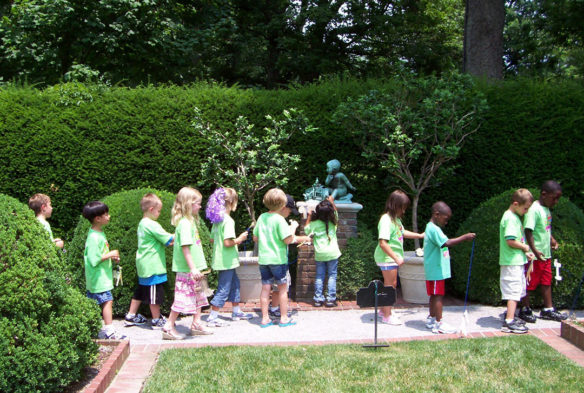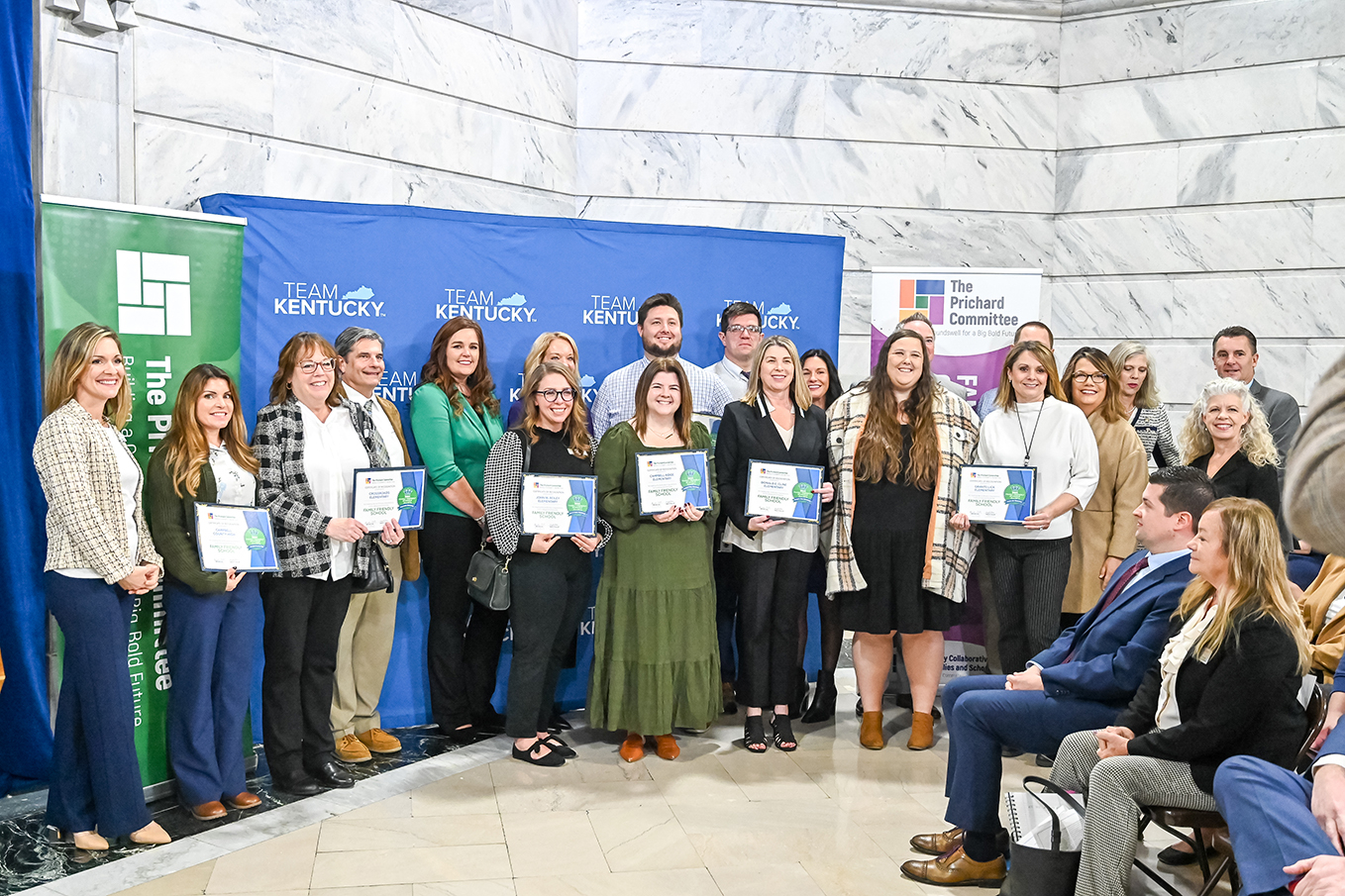
Students tour the formal garden at Ashland, The Henry Clay Estate.
Photo submitted
Young Kentuckians of today are about to become very familiar with Kentuckians of the past. The new Kentucky Academic Standards for Social Studies incorporates Kentucky studies throughout a student’s primary and secondary education.
This shift creates plenty of challenges and opportunities for teachers. Ashland – the home of legendary Kentucky statesman Henry Clay – is here to help. The scope of Ashland’s history ranges from the state’s early days, when Clay traveled from Virginia to Kentucky in 1791, all the way to 1950, when Ashland opened its doors to the public.
When students come to Ashland, they learn about famous Kentuckians like Clay, the Great Compromiser; Madeline McDowell Breckinridge, a suffragist of national importance; and Charlotte Dupuy, an enslaved woman who sued Clay for her freedom. They also learn about the role that hemp has played in Kentucky’s past, present and future. Ashland has a range of on- and offsite programming options to reinforce what you’re already doing in the classroom, including:
TOURS
Henry Clay Signature: The Ashland Signature Mansion Tour allows students to step back in time to learn about state history through the lens of the Kentucky’s favorite son, Henry Clay. Students also will learn about the art of compromise, slavery at Ashland, Kentucky’s role as an agricultural powerhouse and the horse racing industry.
Women’s Voices: The Women’s Voices Tour takes students on a journey through the lives of nine women of Ashland who demonstrate the changing role of women in society. Students will learn about strong Kentucky women who made an impact nationally, including Charlotte Dupuy and Madeline McDowell Breckinridge.
African American History: Explore African American history at Ashland from slavery through emancipation. Students will delve into the life and work of the Dupuy family, who were enslaved to work for the Clay family. Learn what a day in the life of an enslaved person in Kentucky was like and how some asserted their humanity in the face of extraordinary hardship.
Agriculture: This indoor/outdoor tour of the estate explores Clay’s agricultural innovation at Ashland, from hemp cultivation to raising Berkshire hogs. Students will learn about Kentucky’s agricultural past, present and future.
Art and Grounds: The Art and Grounds Tour mixes together art, history and nature. This outdoor walking tour features stops at Kentucky’s former and current state tree, an exploration of native species such as running buffalo clover, and the opportunity for students to interpret modern art in a historic space.
FIELD TRIP EXPERIENCES
#HashtagHistory: Instagram Field Trip (up to 20 students): Students create their own historical narratives using Instagram or Snapchat “stories.”
The Art of Compromise: Students put themselves in the shoes of Clay, the Great Compromiser, by compromising on modern issues.
Whose Triumph and Whose Tragedy?: The Compromise of 1850: Students explore Clay’s Compromise of 1850 from the perspective of those it affected, not those who made the compromise.
Slavery at Ashland: Who were the enslaved men, women and children at Ashland? Where did they live? What kind of work did they do? Students learn about slavery on a hemp plantation.
CLASSROOM VISITS
Ashland staff brings Kentucky history to life using artifacts. Teachers can choose from a range of Kentucky history topics: the Civil War, hemp and agriculture, Kentucky suffragists, slavery, Clay and more!
To learn more about programming options or how to incorporate Ashland’s history into your curriculum email Cameron Walpole or call me at (859) 266-8581, ext. 205.
Cameron Walpole is manager of tours and education at Ashland, The Henry Clay Estate.




Regrettably Henry Clay and his entire era are no longer part of the elementary social studies standards. How sad!
While the KDE is responsible for the development of standards, state law assigns each local SBDM council the authority to design the school’s curriculum and determine appropriate instructional materials based on language found in KRS 160.345. It is important to note that the KAS for Social Studies includes discipline specific Kentucky studies, where appropriate, throughout a child’s social studies education K-12. Educators may decide to include Ashland in their grade 1 curriculum when engaging with a standard such as, “1.C.KGO.2 Investigate how civic identity is shaped by symbolic figures, places and events.” As stated in the KAS for Social Studies, civic identity can be shaped by diverse historical figures from the state, local communities and unique places, which may include, but are not limited to, Ashland. By incorporating significant places of local and state history into the curriculum, students will have the opportunity to develop a more sophisticated understanding of Kentucky and, in turn, students will be able to better understand self, others and the world.